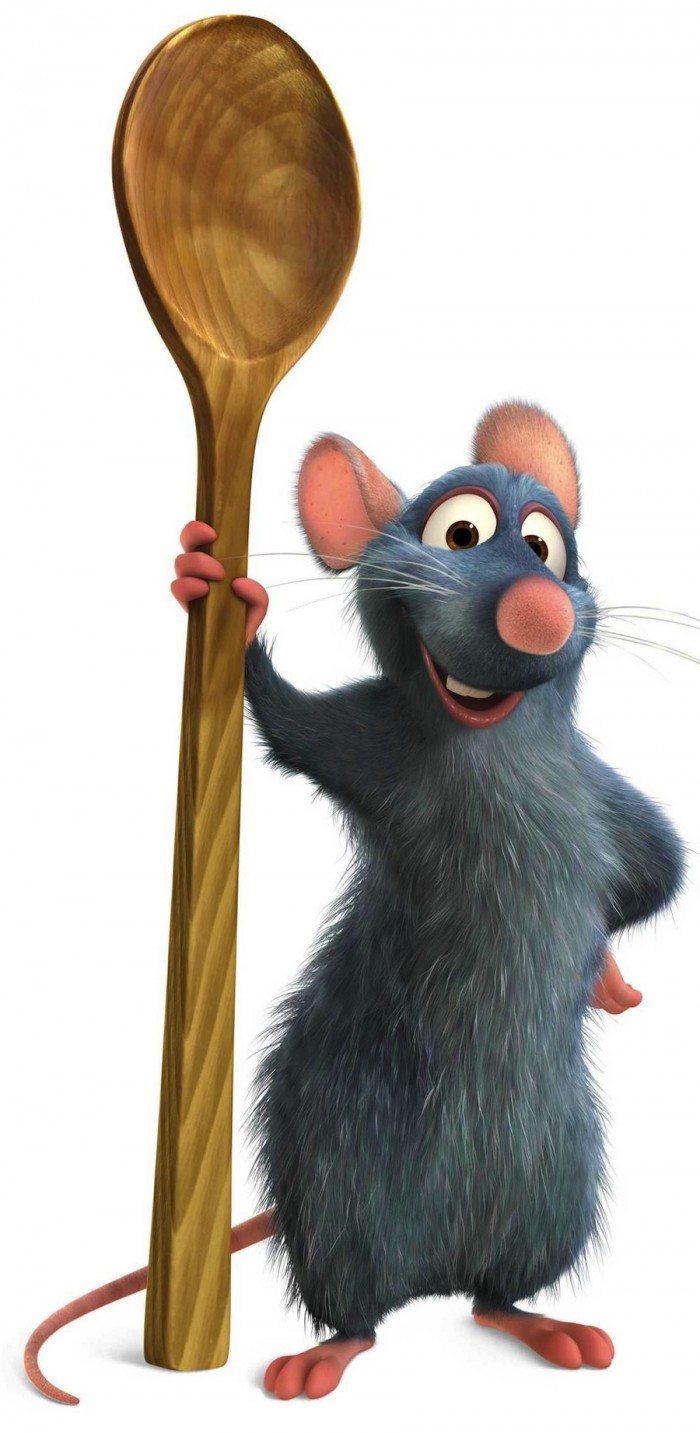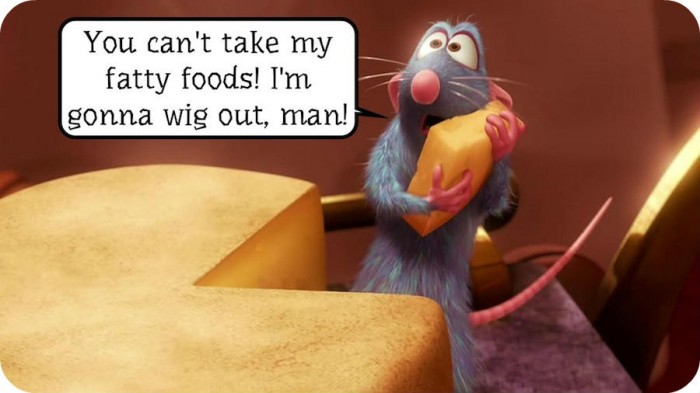 This is exactly the type of research I hoped to share when I started Prayers and Apples, so I’m extra excited about today’s post!
This is exactly the type of research I hoped to share when I started Prayers and Apples, so I’m extra excited about today’s post!
The following information is reprinted from materials provided by the University of Montreal, a.k.a. Universite de Montreal (which is appropriate, seeing as I came across it while participating in a video-conferenced French lecture last night hehe ..shhh!!)
Je travaille toujours sur ‘Prayers and Apples’ (les prières et les pommes!) quand je devrais faire le travail scolaire ;)
Voici la recherche:
Even before obesity occurs, eating fatty and sugary foods causes chemical changes in the brain, meaning that going on a diet might feel similar to going through drug withdrawal, according to a study published by Dr. Stephanie Fulton of the University of Montreal’s Faculty of Medicine and its affiliated CRCHUM Hospital Research Centre.
“By working with mice, whose brains are in many ways comparable to our own, we discovered that the neurochemistry of the animals who had been fed a high fat, sugary diet were different from those who had been fed a healthy diet,” Fulton explained.
“The chemicals changed by the diet are associated with depression. A change of diet then causes withdrawal symptoms and a greater sensitivity to stressful situations, launching a vicious cycle of poor eating.”
 The research team fed one group of mice a low-fat diet and a high-fat diet to a second group over six weeks, monitoring how the different food affected the way the animals behave. Fat represented 11% of the calories in the low-fat diet and 58% in the high-fat diet, causing the waist size in the latter group to increase by 11% – not yet obese. Next, Fulton and her colleagues used a variety of scientifically validated techniques to evaluate the relationship between rewarding mice with food and their resulting behavior and emotions. They also actually looked at the brains of the mice to see how they had changed.
The research team fed one group of mice a low-fat diet and a high-fat diet to a second group over six weeks, monitoring how the different food affected the way the animals behave. Fat represented 11% of the calories in the low-fat diet and 58% in the high-fat diet, causing the waist size in the latter group to increase by 11% – not yet obese. Next, Fulton and her colleagues used a variety of scientifically validated techniques to evaluate the relationship between rewarding mice with food and their resulting behavior and emotions. They also actually looked at the brains of the mice to see how they had changed.
Mice that had been fed the higher-fat diet exhibited signs of being anxious, such as an avoidance of open areas. Moreover, their brains have been physically altered by their experiences. One of molecules in the brain that the researchers looked at is dopamine. It enables the brain to rewards us with good feelings, thereby encouraging us to learn certain kinds of behavior. This chemical is the same in humans as it is in mice and other animals. In turn, CREB is a molecule that controls the activation of genes involved in the functioning of our brains, including those that cause the production of dopamine. It contributes to memory formation.
“CREB is much more activated in the brains of higher-fat diet mice and these mice also have higher levels of corticosterone, a hormone that is associated with stress. This explains both the depression and the negative behavior cycle,” Fulton said.
“It’s interesting that these changes occur before obesity. These findings challenge our understanding of the relationship between diet, the body and the mind. It is food for thought about how we might support people psychologically as they strive to adopt healthy eating habits, regardless of their current corpulence.”
C’est fascinant, non? :)
Just to clarify (because I was a little confused until I read the entire study): Sensitivity to stress develops during the course of a high-fat diet (along with depression); changing to a healthy diet makes that sensitivity even worse. I would assume your chemicals balance back to normal after a certain period of time – but we need to dig around for some more research before we know for sure. Not to worry – I’m on it! ;)
Have you ever noticed increased anxiety when you change your diet?

My post publishing schedule is super random (I really need to work on that! lol)
So if you don’t want to miss new articles, feel free to enter your email address below and we’ll shoot you a message when new posts go live :) ♥
*No boring spam, I promise! :) Just fun mind-body-spirit stuff! ♥
*Please note: You’ll receive an email asking you to confirm your subscription. Make sure you open and click confirm – otherwise, you won’t get updates! :)
You can also find Prayers and Apples on the social media sites below! ♥
Other Posts You Might Like:
- Positive Psychology: The Science of Beyonce
- How to Be Optimistic (Like a Boss)
- Gluten and Depression: The Jimi Hendrix Experience
- What Percent of Happiness Can We Control?
- Exercise and Mood: The Basics
- ADHD, Autism and the Gluten Connection
- Depression Research Everybody Deserves to Know
- Can You Really Die from a Broken Heart?
References
♥ Images source: Ratatouille, Pixar
Sharma, S., Fernandes, M.F. & Fulton, S. (2012). Adaptations in brain reward circuitry underlie palatable food cravings and anxiety induced by high-fat diet withdrawal. International Journal of Obesity. doi: 10.1038/ijo.2012.197
Universite de Montreal. (2012, December 12). Could ending your fatty food habit cause withdrawal symptoms and depression?. Retrieved March 26, 2013 from ScienceDaily.
PS. For anyone really interested, there’s a super similar article (also by Sharma and Fulton, minus Fernandes) appearing in this month’s issue of the International Journal of Obesity that uses the same study to suggest that striatal BDNF and CREB signalling molecules may “mediate the effects of high-fat feeding and diet-induced obesity to promote negative emotional states and depressive-like symptomology.” Check it out if you’re in a science-y mood!







Good info! So what about the title? Is the answer yes, healthy eating does cause withdrawal symptoms? It’s weird, since I’ve been eating (more) clean my body doesn’t miss or crave sodas, fried food, or white carbs at all but I’m always craving cheeses and sweets. I wonder if there’s some chemistry to that or if its just personal preference.
Yep, at least according to this study (one report is never the final word, but this one seems to go along with other studies that have been coming out recently… like the stuff from Similarities Btw Food Addiction and Drug Addiction)… I think it depends on how drastic the change is (like how high-fat of a diet you had before)… The cheese and sweets is maybe a mix of both (I’m just guessing!) bc drug withdrawals are both physiological and psychological… (Info from that Food’s Effect on Memory post talks about food and drug addictions and their similar chemical stuff too..) It probably varies person to person, just like how some people can quit addictive things (drinking, smoking etc) no problem, but then others have a really hard time – again, just guessing! :) I’m on the lookout for more studies :)
I am SO glad you researched this Jessica … you know in the past year I have quit smoking and given up caffeine (okay maybe one cup every fortnight) but giving up those two addictions was NOTHING compared with the hell I have lived through *drama for effect* trying to quit sugar and junk foods !
“The chemicals changed by the diet are associated with depression. A change of diet then causes withdrawal symptoms and a greater sensitivity to stressful situations, launching a vicious cycle of poor eating,” resonated with me as I have struggled in the past with anxiety and depression when living high on sugars on junk so this information is fantastic for me to know and has fuelled my desire to try even harder (after a sugar binge two days ago).
I find once my emotions are quantified by some sort of research it allows me to think, ‘okay this a normal physical reaction my body is going through’ which allows me to not be so hard on myself if I fall. It has been and still is a real battle for me but one I’m determined to win as I honestly have seen the positive effects physically and mentally when I make better food decisions. Thanks again Jessica :)
I’m the same way: knowing the science/reasons behind why I’m feeling a certain way makes it a lot easier to push through. And you’re more than welcome! This is the stuff I’m super interested in (how food/exercise affects physiological functioning.. especially getting down to the real chemical stuff!) so I’ll def be on the lookout for more info! :)
I am so glad that you posted about this Jessica! I was just talking to someone at work about this the other day! When I took sugary foods and processed foods out of my diet, it was hard at first, but once it was gone my body stopped craving it and it didn’t bother me to be around it.
But with recent events….braces and having some teeth pulled for the braces….I have noticed that not taking in enough calories throughout the day has played a major affect on my mood and anxieties. Oh man has it ever! One day I don’t even think that I got 1000 calories and I was just done for! What I noticed was that my reaction to things was just amplified. I seem to be more sensitive when it came to my emotions and I seemed to get my feelings hurt a lot! Anyway, after reading this I really do feel that the change in my diet had a huge impact on my mood and mood swings.
I was talking to Kevin about it and he suggested that I take in some sort of supplement until I am able to actually “eat” normally again.
Thank you for sharing this!!
Not getting enough calories will def put you on an emotional roller coaster! You should consider listening to your man ;) Or maybe incorporating more healthy smoothies and shakes (just throw as much good stuff as you can into a blender! haha) :)
Can I just say I am trying to scan blogs with my almost three year-old over my shoulder, when he exclaims, “RATATOUILLE! Mommy, look!” Well done, my friend. You made Hendrik very happy this AM.
LOL! Yay! :) The Hendrik seal of approval! :)
Hi there,
I love the blog and love the concept. Healthy eating and living is so much more than food and fitness (and psychology); there’s an important spiritual element in it. We are created by a loving God, and knowing that this is our identity is crucial in a healthy hollistic mindset!
Secondly, have you read ‘Salt, Sugar and Fat’ by Michael Moss? He discusses the addictive nature of “foods” that have been “modified” with salt, sugar (of various forms), and fats. (This in response to: “The chemicals changed by the diet are associated with depression. A change of diet then causes withdrawal symptoms and a greater sensitivity to stressful situations, launching a vicious cycle of poor eating.”)
Anyway, I’d be honored if you would follow my blog and offer input on some of things I post! I love, love, love what your’e doing! Keep up the good work (and keep fighting the good fight!).
Hi Tiffany! Thanks so much for stopping by! I’m really glad you like it and I look forward to checking out your blog! :) PS. I haven’t read that book yet, but I’ll def put it on my list!
So – Is there anything we can to help with the withdrawal?
I had been eating a really healthy way and had to change for 3 weeks while away…now…struggling to get back…
Fried food with Onions especially difficult…
Any Teas or things we can use to get our systems in balance so we can resist these cravings more efficiently?
Hi Veronica,
I’m so sorry for my late response! I have read that Pu-erh tea (used after meals) is helpful… but I’ll continue researching and let you know if I find anything else! :)
Thank you the information helped.